I am not a proponent of pre-made Sunday School lessons. However, planning out the year of the major topics of things you want your class to learn is just wise. Especially when you take that topic to God and allow Him to show you things in the scriptures that will prepare you, that’s a double win. Too often churches get bigger and people get lazy so they switch to premade lessons… the end result is lessons that contain no Spirit lead information. It’s no better than looking it up online and just reading it. Information is NOT knowledge. It is our responsibility as teachers to impart knowledge.
1 Timothy 2:4 Who will have all men to be saved, and to come unto the knowledge of the truth.
January – Self Examination and Things New
Examples:
- Self Examination
- New Creature
- New Song
- New Man
Example Verses:
2 Corinthians 13:5 Examine yourselves, whether ye be in the faith; prove your own selves. Know ye not your own selves, how that Jesus Christ is in you, except ye be reprobates?
Psalms 26:2 Examine me, O LORD, and prove me; try my reins and my heart.
2 Corinthians 5:17 Therefore if any man be in Christ, he is a new creature: old things are passed away; behold, all things are become new.
Psalms 40:3 And he hath put a new song in my mouth, even praise unto our God: many shall see it, and fear, and shall trust in the LORD.
Ephesians 4:22 That ye put off concerning the former conversation the old man, which is corrupt according to the deceitful lusts;
23 And be renewed in the spirit of your mind;
24 And that ye put on the new man, which after God is created in righteousness and true holiness.
February – Love
Examples:
- For God so Loved (love in action)
- Love Not… (world)
- Love my commandments
- Love one another
Example Verses:
John 3:16 For God so loved the world, that he gave his only begotten Son, that whosoever believeth in him should not perish, but have everlasting life.
1 John 2:15 Love not the world, neither the things that are in the world. If any man love the world, the love of the Father is not in him.
John 14:15 If ye love me, keep my commandments.
1 John 3:11 For this is the message that ye heard from the beginning, that we should love one another.
March – Morals
- Stealing (things, time, value)
- Lying (to God and others)
- Corrupt communication
- What is Sin and how does God see it
Example Verses:
Ephesians 4:28 Let him that stole steal no more: but rather let him labour, working with his hands the thing which is good, that he may have to give to him that needeth.
Proverbs 6:17 A proud look, a lying tongue, and hands that shed innocent blood,
Ephesians 4:29 Let no corrupt communication proceed out of your mouth, but that which is good to the use of edifying, that it may minister grace unto the hearers.
Romans 5:12 Wherefore, as by one man sin entered into the world, and death by sin; and so death passed upon all men, for that all have sinned:
1 John 2:16 For all that is in the world, the lust of the flesh, and the lust of the eyes, and the pride of life, is not of the Father, but is of the world.
April – Heroes of the Faith
Examples:
- Jesus
- Abraham
- Jonah
- Job
- Noah
- Moses
Example Verses:
John 21:25 And there are also many other things which Jesus did, the which, if they should be written every one, I suppose that even the world itself could not contain the books that should be written. Amen.
Hebrews 11:4 By faith Abel offered unto God a more excellent sacrifice than Cain, by which he obtained witness that he was righteous, God testifying of his gifts: and by it he being dead yet speaketh.
5 By faith Enoch was translated that he should not see death; and was not found, because God had translated him: for before his translation he had this testimony, that he pleased God.
Hebrews 11:7 By faith Noah, being warned of God of things not seen as yet, moved with fear, prepared an ark to the saving of his house; by the which he condemned the world, and became heir of the righteousness which is by faith.
8 By faith Abraham, when he was called to go out into a place which he should after receive for an inheritance, obeyed; and he went out, not knowing whither he went.
Hebrews 11:11 Through faith also Sara herself received strength to conceive seed, and was delivered of a child when she was past age, because she judged him faithful who had promised.
Hebrews 11:20 By faith Isaac blessed Jacob and Esau concerning things to come.
21 By faith Jacob, when he was a dying, blessed both the sons of Joseph; and worshipped, leaning upon the top of his staff.
22 By faith Joseph, when he died, made mention of the departing of the children of Israel; and gave commandment concerning his bones.
23 By faith Moses, when he was born, was hid three months of his parents, because they saw he was a proper child; and they were not afraid of the king’s commandment.
May – Memorial/ Service
Examples:
- Memorial Day (greater love)
- Christian Service
- Memorials in the Bible (Marking where God has shown you something)
- Setting the Example for others
Example Verses:
John 15:13 Greater love hath no man than this, that a man lay down his life for his friends.
Romans 12:1 I beseech you therefore, brethren, by the mercies of God, that ye present your bodies a living sacrifice, holy, acceptable unto God, which is your reasonable service.
Matthew 26:13 Verily I say unto you, Wheresoever this gospel shall be preached in the whole world, there shall also this, that this woman hath done, be told for a memorial of her.
1 Corinthians 10:11 Now all these things happened unto them for ensamples: and they are written for our admonition, upon whom the ends of the world are come.
June – Fundamental Basic Doctrine
Examples:
- Salvation
- Baptism
- Lords Supper
- Tithe
- Missions
- Faith
- How to Pray
Example Verses:
John 3:16 For God so loved the world, that he gave his only begotten Son, that whosoever believeth in him should not perish, but have everlasting life.
Romans 6:4 Therefore we are buried with him by baptism into death: that like as Christ was raised up from the dead by the glory of the Father, even so we also should walk in newness of life.
1 Corinthians 11:26 For as often as ye eat this bread, and drink this cup, ye do shew the Lord’s death till he come.
Matthew 6:9 After this manner therefore pray ye: Our Father which art in heaven, Hallowed be thy name.
Hebrews 11:1 Now faith is the substance of things hoped for, the evidence of things not seen.
July – More Advanced Doctrine
(should be taught from a definition point)
Examples:
- What is prophecy and what makes it a prophecy
- Virgin Birth
- Rapture
- Judgement Seat of Christ
- Marriage Supper
- 2nd Coming of Christ
- Calvary
Example Verses:
1 Thessalonians 4:13 But I would not have you to be ignorant, brethren, concerning them which are asleep, that ye sorrow not, even as others which have no hope.
14 For if we believe that Jesus died and rose again, even so them also which sleep in Jesus will God bring with him.
15 For this we say unto you by the word of the Lord, that we which are alive and remain unto the coming of the Lord shall not prevent them which are asleep.
16 For the Lord himself shall descend from heaven with a shout, with the voice of the archangel, and with the trump of God: and the dead in Christ shall rise first:
17 Then we which are alive and remain shall be caught up together with them in the clouds, to meet the Lord in the air: and so shall we ever be with the Lord.
18 Wherefore comfort one another with these words.
2 Corinthians 5:10 For we must all appear before the judgment seat of Christ; that every one may receive the things done in his body, according to that he hath done, whether it be good or bad.
11 Knowing therefore the terror of the Lord, we persuade men; but we are made manifest unto God; and I trust also are made manifest in your consciences.
August – Obedience
Examples:
- To God
- To Parents
- To Government
- Servant/Master
Example Verses:
Colossians 3:17 And whatsoever ye do in word or deed, do all in the name of the Lord Jesus, giving thanks to God and the Father by him.
Colossians 3:22 Servants, obey in all things your masters according to the flesh; not with eyeservice, as menpleasers; but in singleness of heart, fearing God:
Ephesians 6:9 And, ye masters, do the same things unto them, forbearing threatening: knowing that your Master also is in heaven; neither is there respect of persons with him.
Ephesians 6:1 Children, obey your parents in the Lord: for this is right.
Hebrews 13:17 Obey them that have the rule over you, and submit yourselves: for they watch for your souls, as they that must give account, that they may do it with joy, and not with grief: for that is unprofitable for you.
September – Character Traits
(fruits of the spirit) Taught from a positive point
Examples:
- Honesty
- Good Testimony
- Integrity (keeping your word)
- Leadership
- Compassion
- Patience
- Generosity
- Patriotism
- Citizenship
- Personal responsibility
Example Verses:
Galatians 5:22 But the fruit of the Spirit is love, joy, peace, longsuffering, gentleness, goodness, faith,
23 Meekness, temperance: against such there is no law.
Philemon 1:5 Hearing of thy love and faith, which thou hast toward the Lord Jesus, and toward all saints;
6 That the communication of thy faith may become effectual by the acknowledging of every good thing which is in you in Christ Jesus.
Luke 10:33 But a certain Samaritan, as he journeyed, came where he was: and when he saw him, he had compassion on him,
Ecclesiastes 5:4 When thou vowest a vow unto God, defer not to pay it; for he hath no pleasure in fools: pay that which thou hast vowed.
5 Better is it that thou shouldest not vow, than that thou shouldest vow and not pay.
October – Harvest
Examples:
- Missions
- Salvation
- Doctrine and Mechanics of Giving
- Witnessing
- Testimony (You can reach those we cant)
- Different Ministries Represented (Bring in a bus captain, Sunday school teacher, former pastor, missionary)
John 4:35 Say not ye, There are yet four months, and then cometh harvest? behold, I say unto you, Lift up your eyes, and look on the fields; for they are white already to harvest.
Mark 13:10 And the gospel must first be published among all nations.
Romans 16:26 But now is made manifest, and by the scriptures of the prophets, according to the commandment of the everlasting God, made known to all nations for the obedience of faith:
November – How to be a Christian
(designed to take what has been taught so far and put it in action)
Examples:
- Reason for rules
- Etiquette in Church
- The House of God
- Music, Television, Social Media
- Thanksgiving
- How to Pray
1 Timothy 3:15 But if I tarry long, that thou mayest know how thou oughtest to behave thyself in the house of God, which is the church of the living God, the pillar and ground of the truth.
Matthew 6:5 And when thou prayest, thou shalt not be as the hypocrites are: for they love to pray standing in the synagogues and in the corners of the streets, that they may be seen of men. Verily I say unto you, They have their reward.
1 Thessalonians 5:18 In every thing give thanks: for this is the will of God in Christ Jesus concerning you.
December – End of Year Wrap-up and Holiday Related
Examples:
- Birth of Christ
- Wise men still seek Him
- Tender time for witnessing
- Good and perfect gift
James 1:17 Every good gift and every perfect gift is from above, and cometh down from the Father of lights, with whom is no variableness, neither shadow of turning.
Matthew 2:1 Now when Jesus was born in Bethlehem of Judaea in the days of Herod the king, behold, there came wise men from the east to Jerusalem,
2 Saying, Where is he that is born King of the Jews? for we have seen his star in the east, and are come to worship him.
Any sermon you wanted to get to but didn’t have time…
- Rebellion
- Law vs. Faith
- Mysteries in the Bible
- Role of a pastor
- Work ethic
- Feeding the 5000
- Having an Effect in this world
- The Hand of God


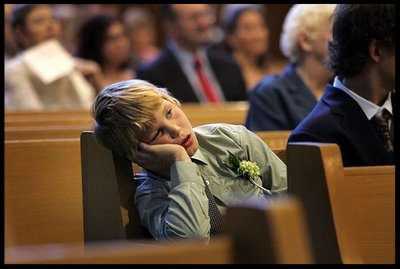

 The Jr. Church is there to help prepare children for the sanctuary service. It carries a huge weight and burden to build and maintain the activities of the children and the workers assisting in the goal. As such the leadership should have all the attributes of a Pastor:
The Jr. Church is there to help prepare children for the sanctuary service. It carries a huge weight and burden to build and maintain the activities of the children and the workers assisting in the goal. As such the leadership should have all the attributes of a Pastor:
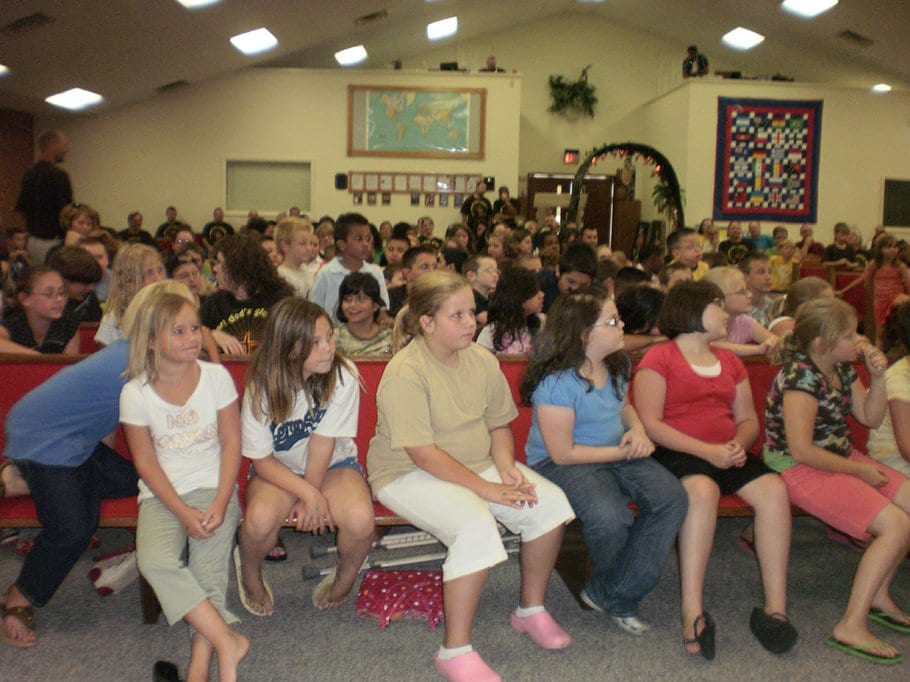
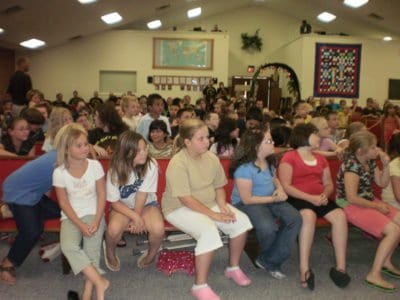 Depending on the size of your Jr. Church you are going to need workers or helpers. These helpers should be volunteers that feel that God could use them in the Jr. Church for the stated purpose of preparing kids for the sanctuary. With that here are some guidelines to assist with worker selection.
Depending on the size of your Jr. Church you are going to need workers or helpers. These helpers should be volunteers that feel that God could use them in the Jr. Church for the stated purpose of preparing kids for the sanctuary. With that here are some guidelines to assist with worker selection.

 Cycled Learning
Cycled Learning Having a basic and developing understanding of obedience will create a child who will appreciate the order that God has established. It helps to stiffen rebellious mindsets when they recognize that God has established this order to protect and direct those to the position of leadership.
Having a basic and developing understanding of obedience will create a child who will appreciate the order that God has established. It helps to stiffen rebellious mindsets when they recognize that God has established this order to protect and direct those to the position of leadership.
 The ages for Jr. Church is a very important consideration as it will have an impact on the effectiveness of the program. This is also where many Churches suffer because of a lack of trained volunteers or Pastors willing to serve in this capacity.
The ages for Jr. Church is a very important consideration as it will have an impact on the effectiveness of the program. This is also where many Churches suffer because of a lack of trained volunteers or Pastors willing to serve in this capacity.  What to do with kids who do not come up through these stages.
What to do with kids who do not come up through these stages.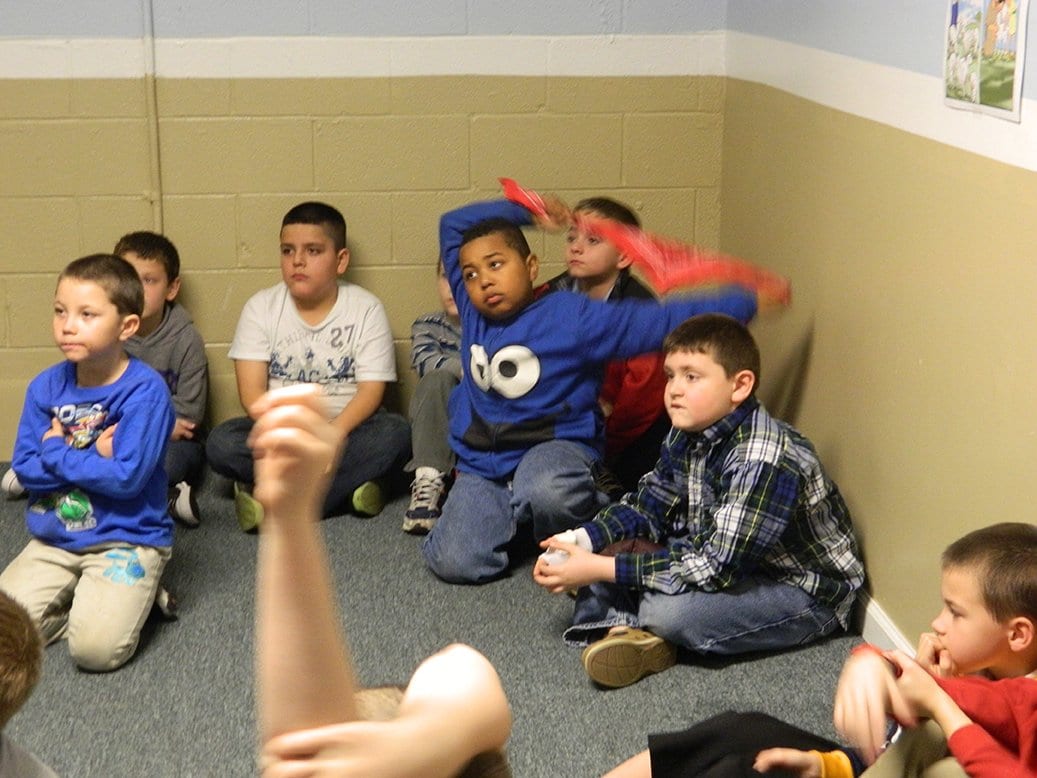
 Children are pliable, moldable vessels. The messages directed to them must be mindful that they can be easily influenced. It is important when preparing messages and when interacting to note that in a larger Jr. Church setting you are going to have great diversity within the group. This includes: ages, family incomes, education levels, attitudes, social and chemical influences. In this mix you are going to find 2 main groups:
Children are pliable, moldable vessels. The messages directed to them must be mindful that they can be easily influenced. It is important when preparing messages and when interacting to note that in a larger Jr. Church setting you are going to have great diversity within the group. This includes: ages, family incomes, education levels, attitudes, social and chemical influences. In this mix you are going to find 2 main groups: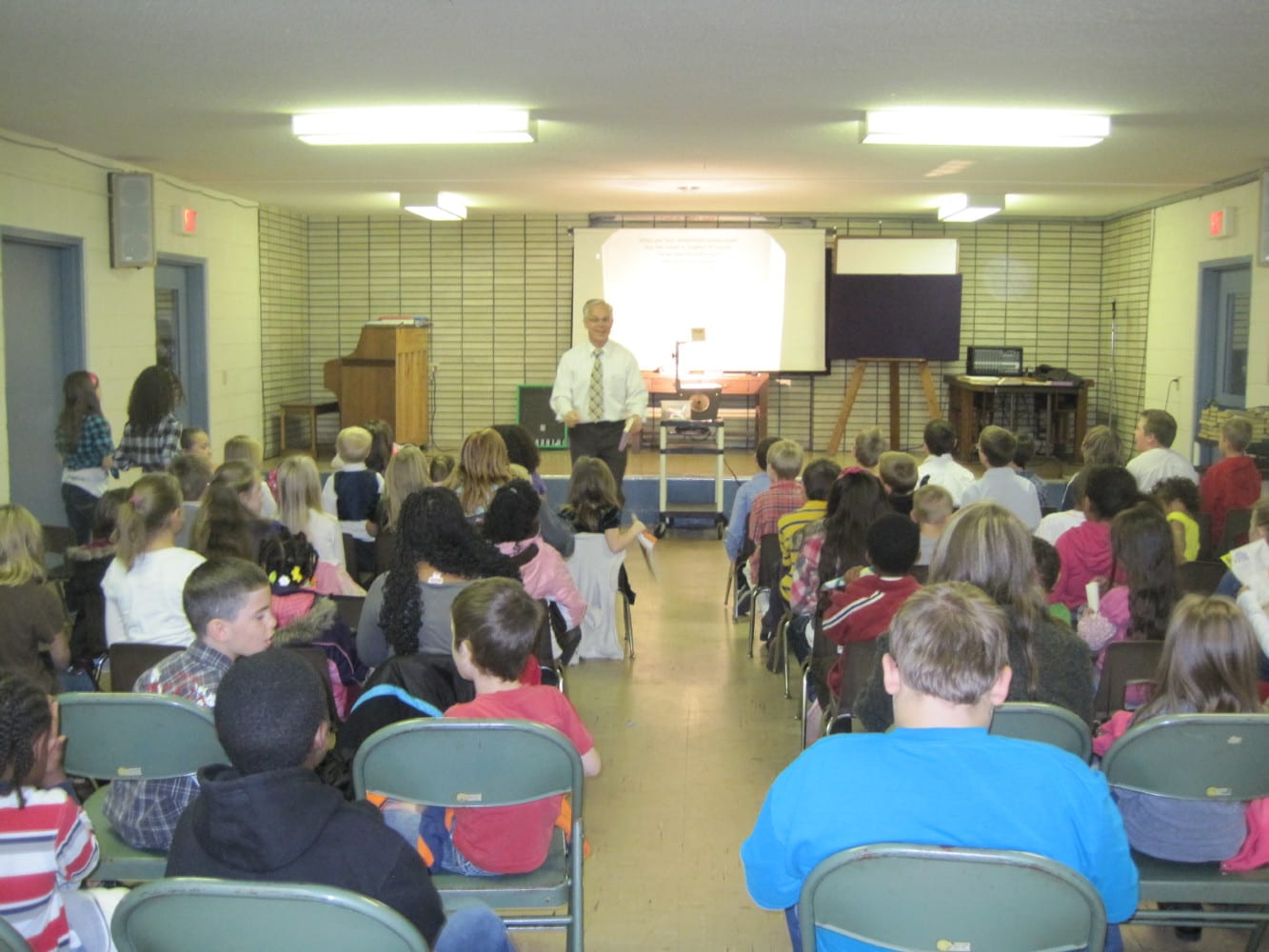
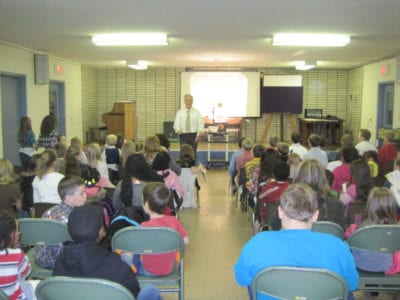 As much as possible the Jr. Church should set-up to resemble the sanctuary service. This includes all the main furniture.
As much as possible the Jr. Church should set-up to resemble the sanctuary service. This includes all the main furniture. 
